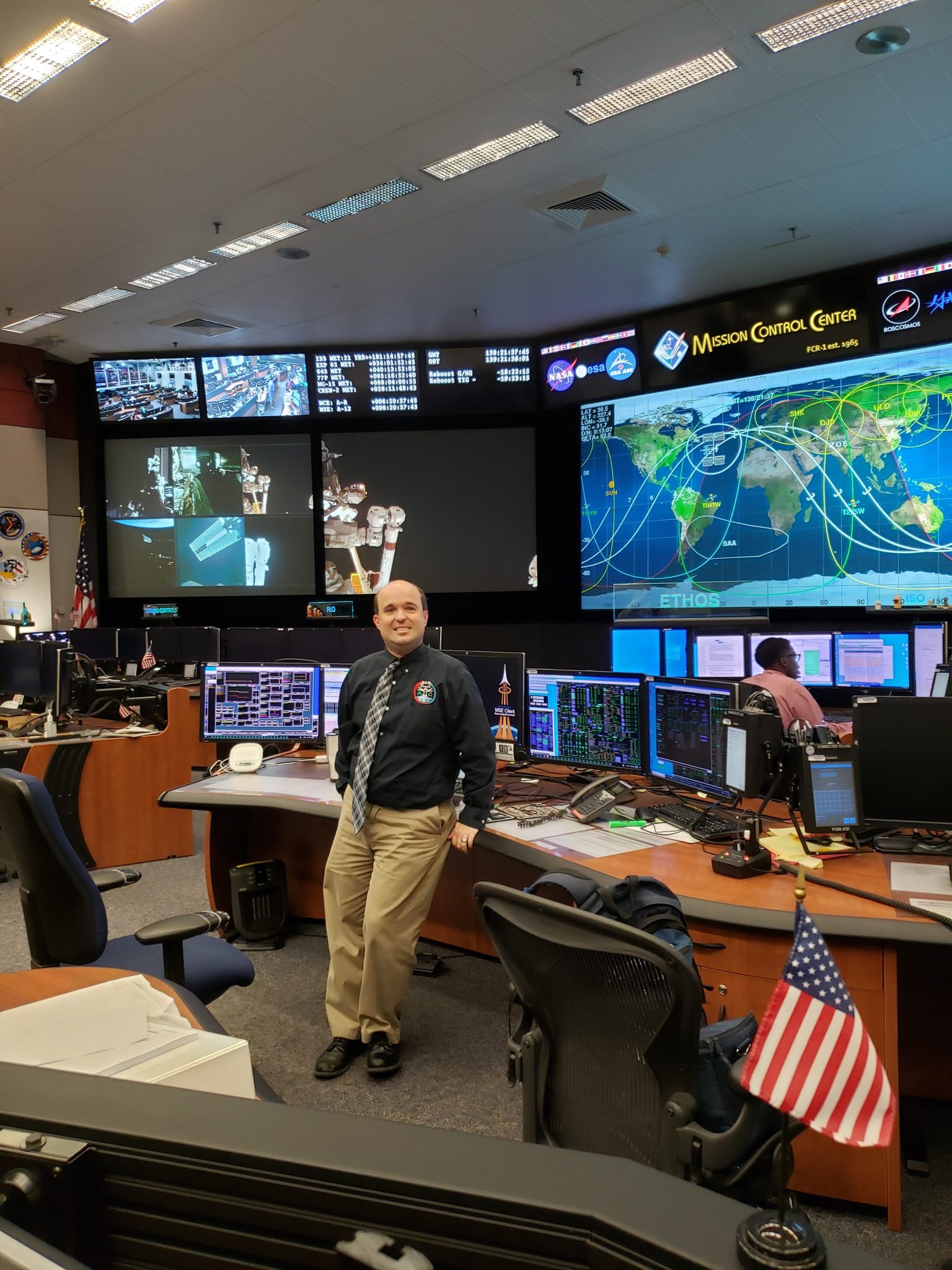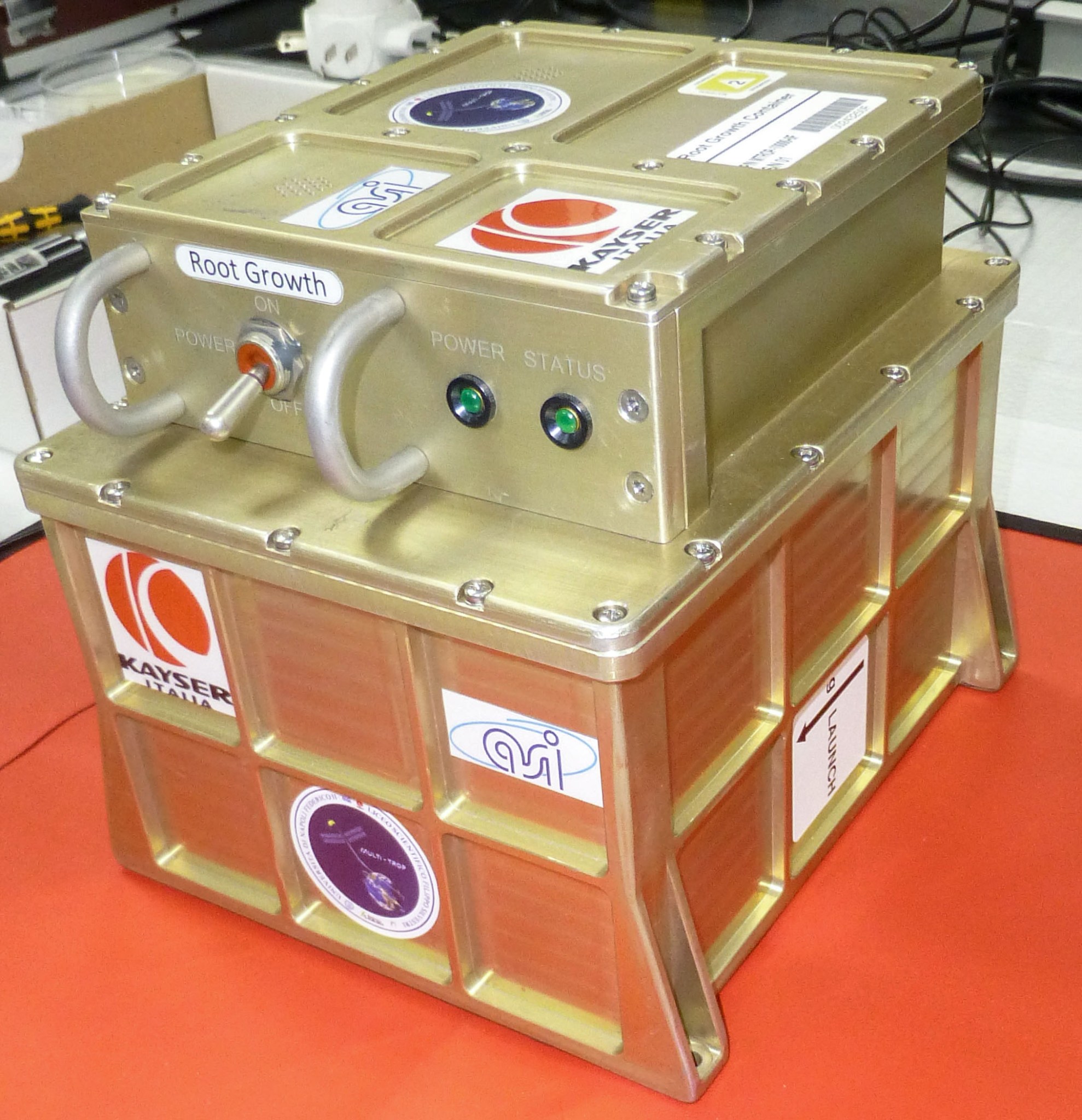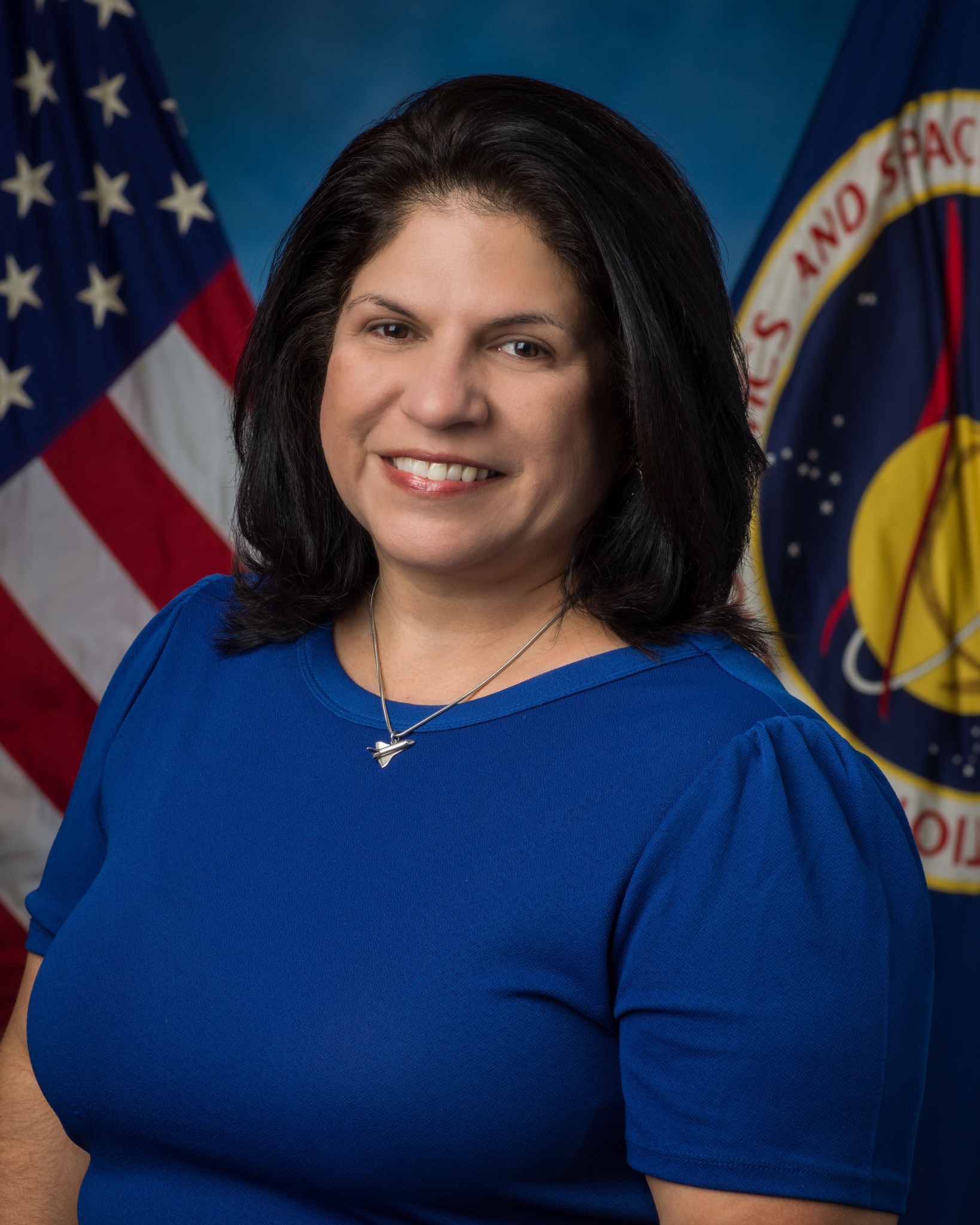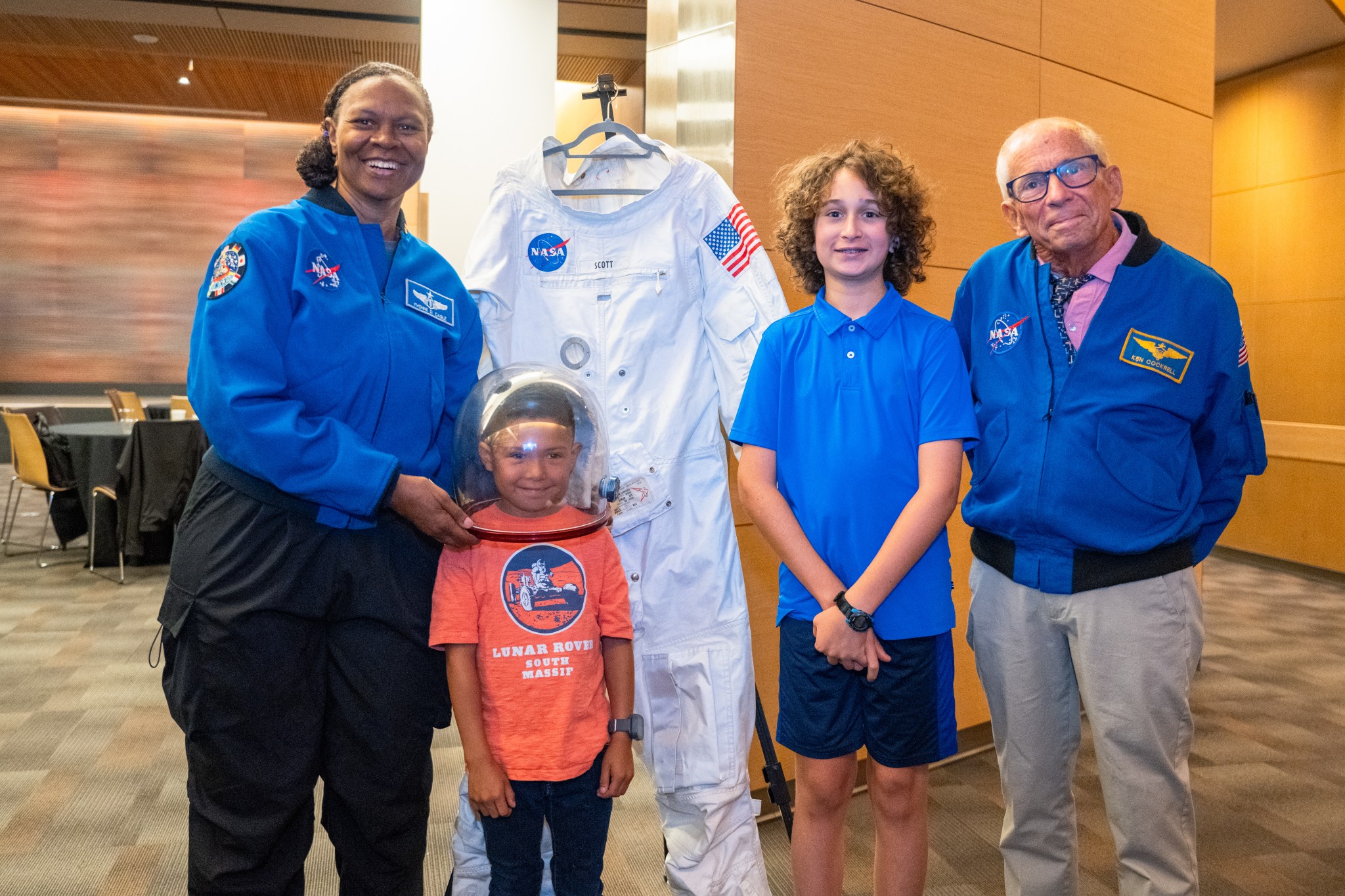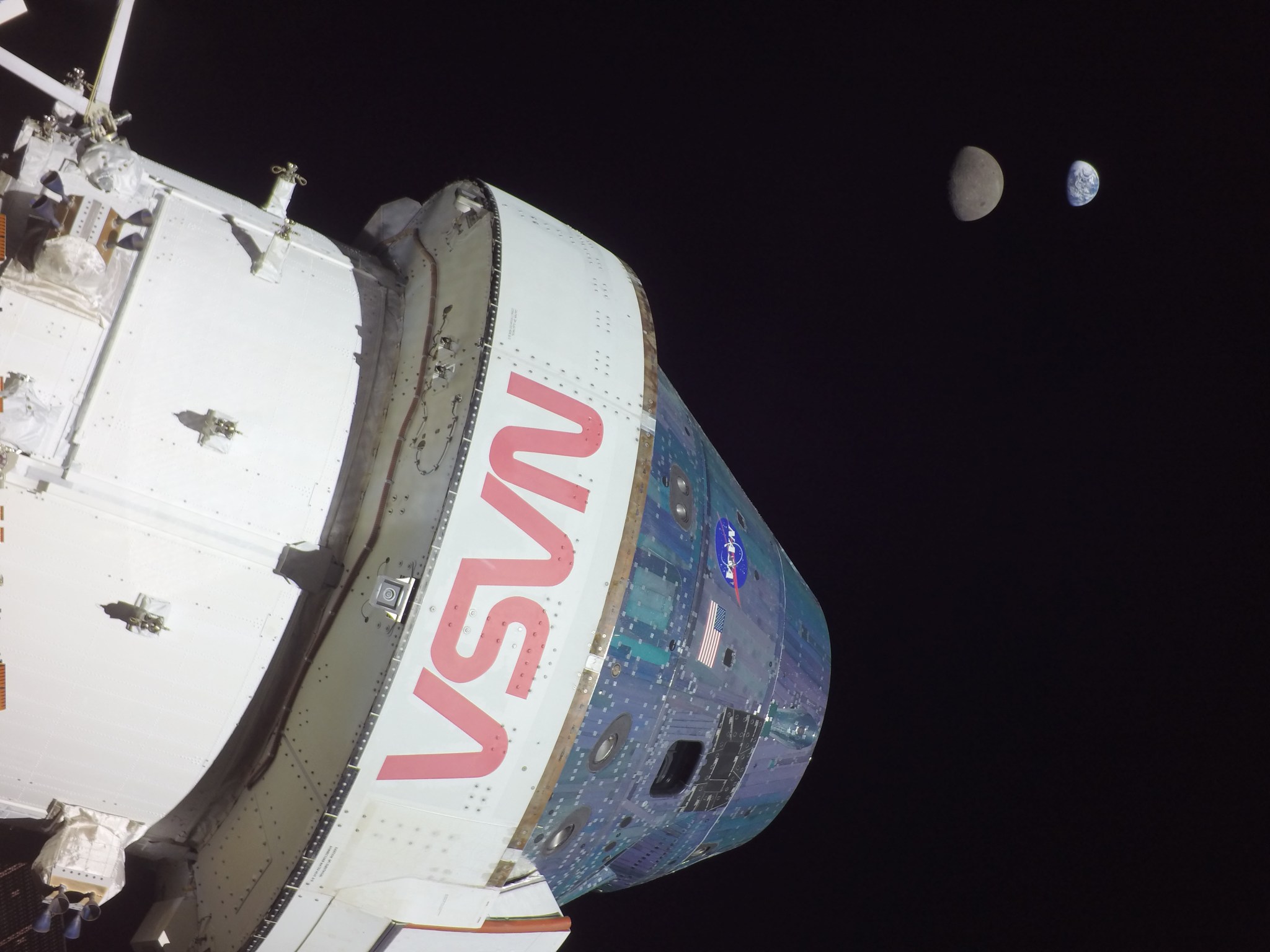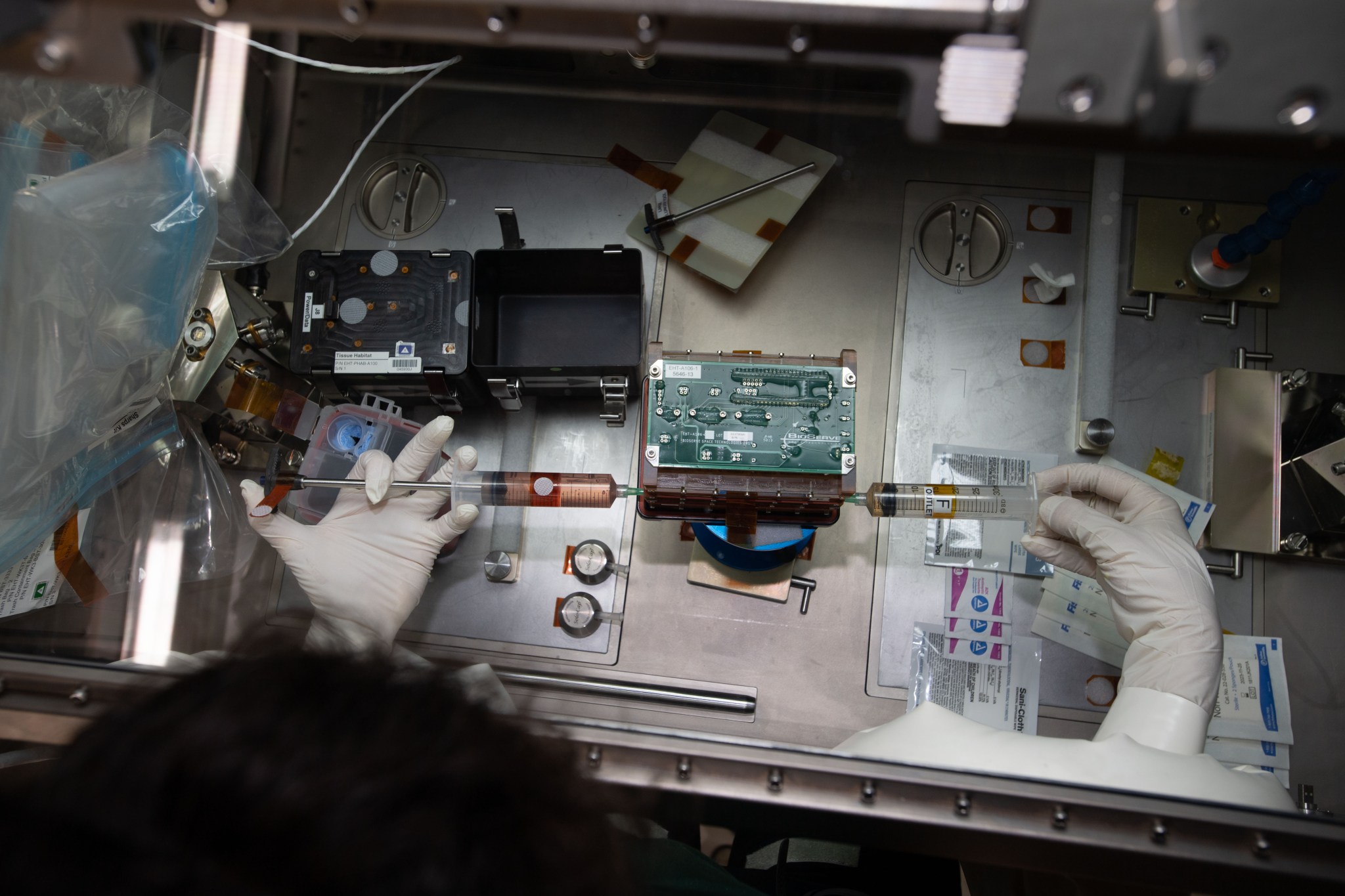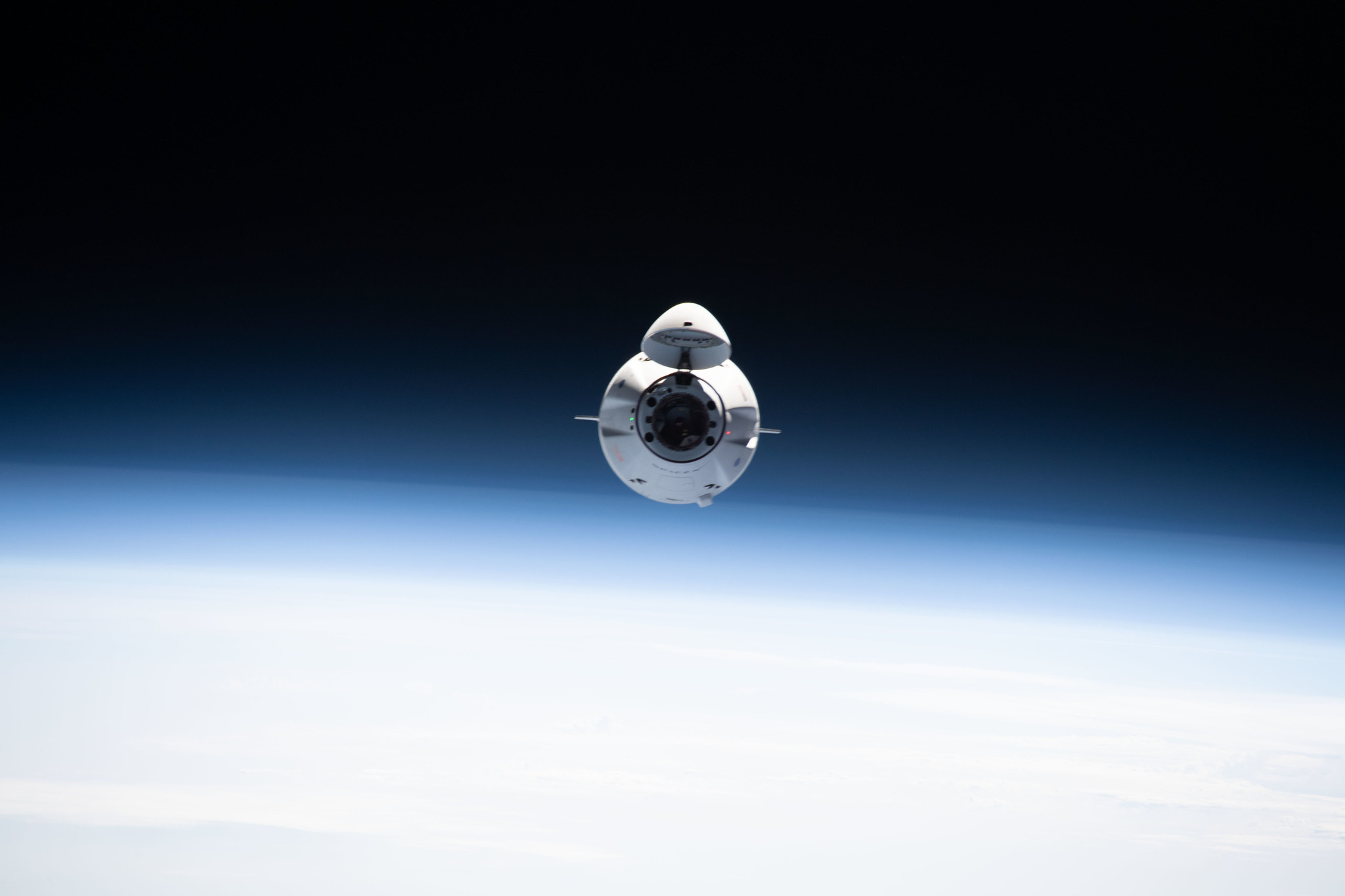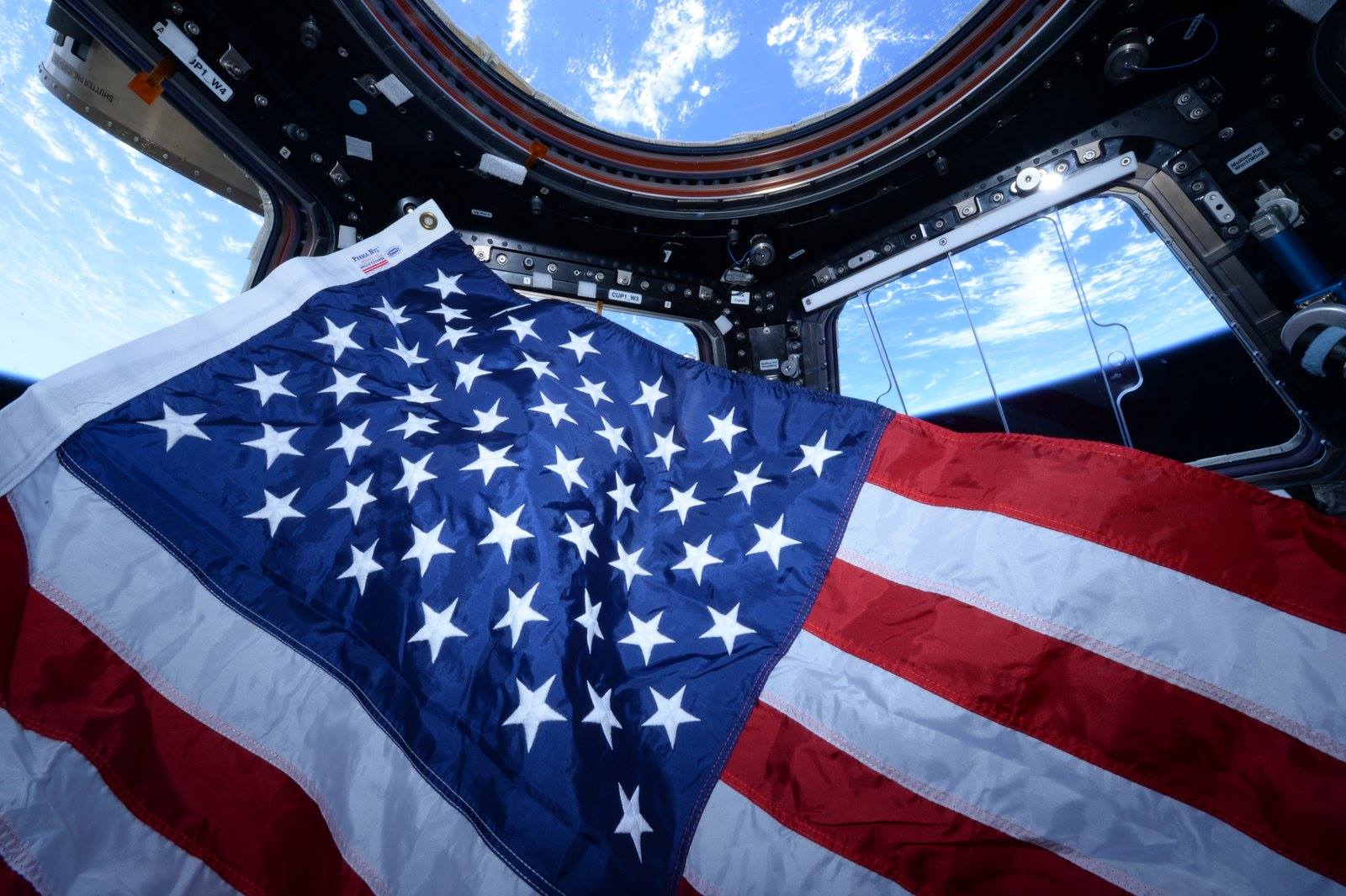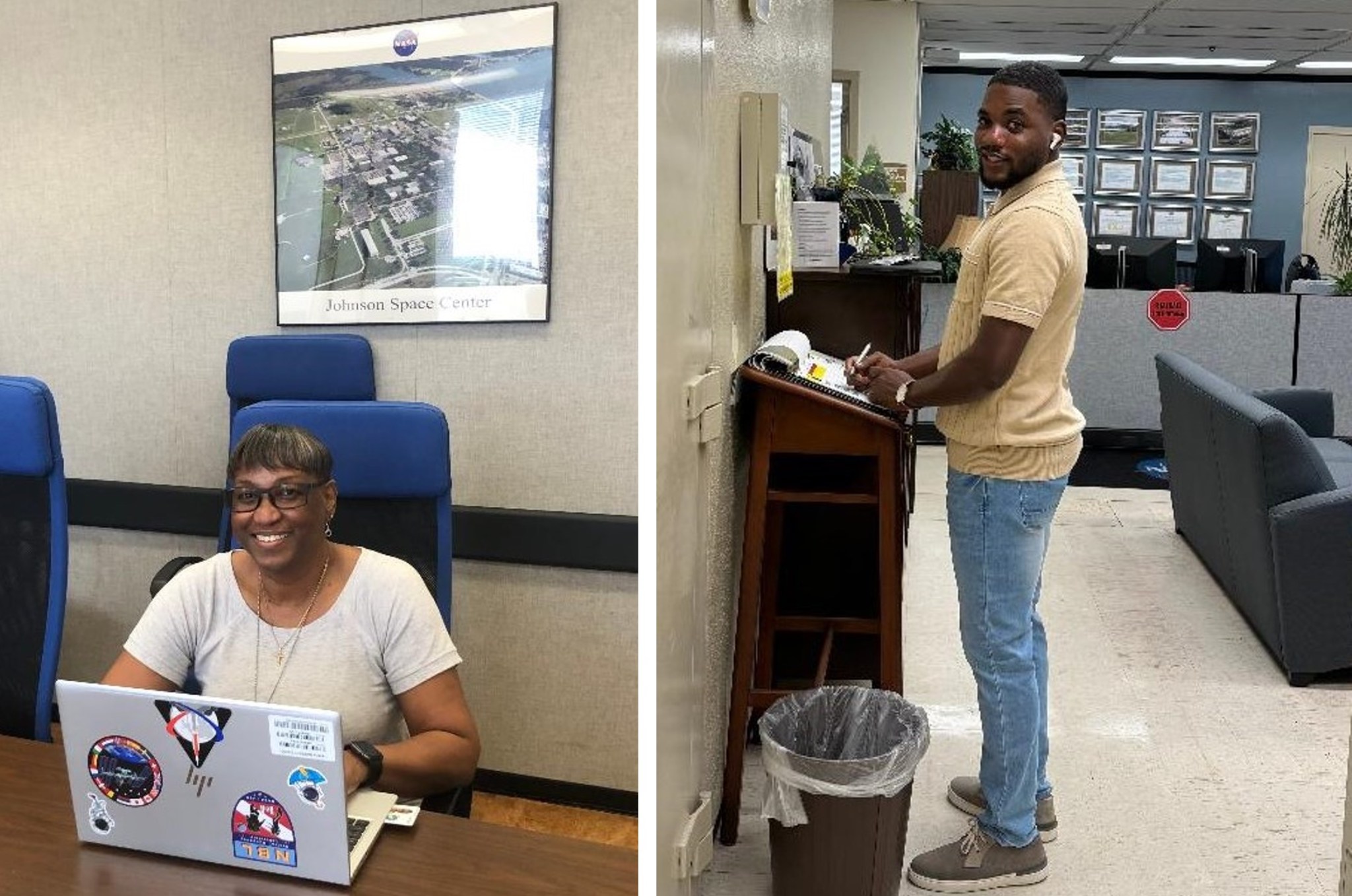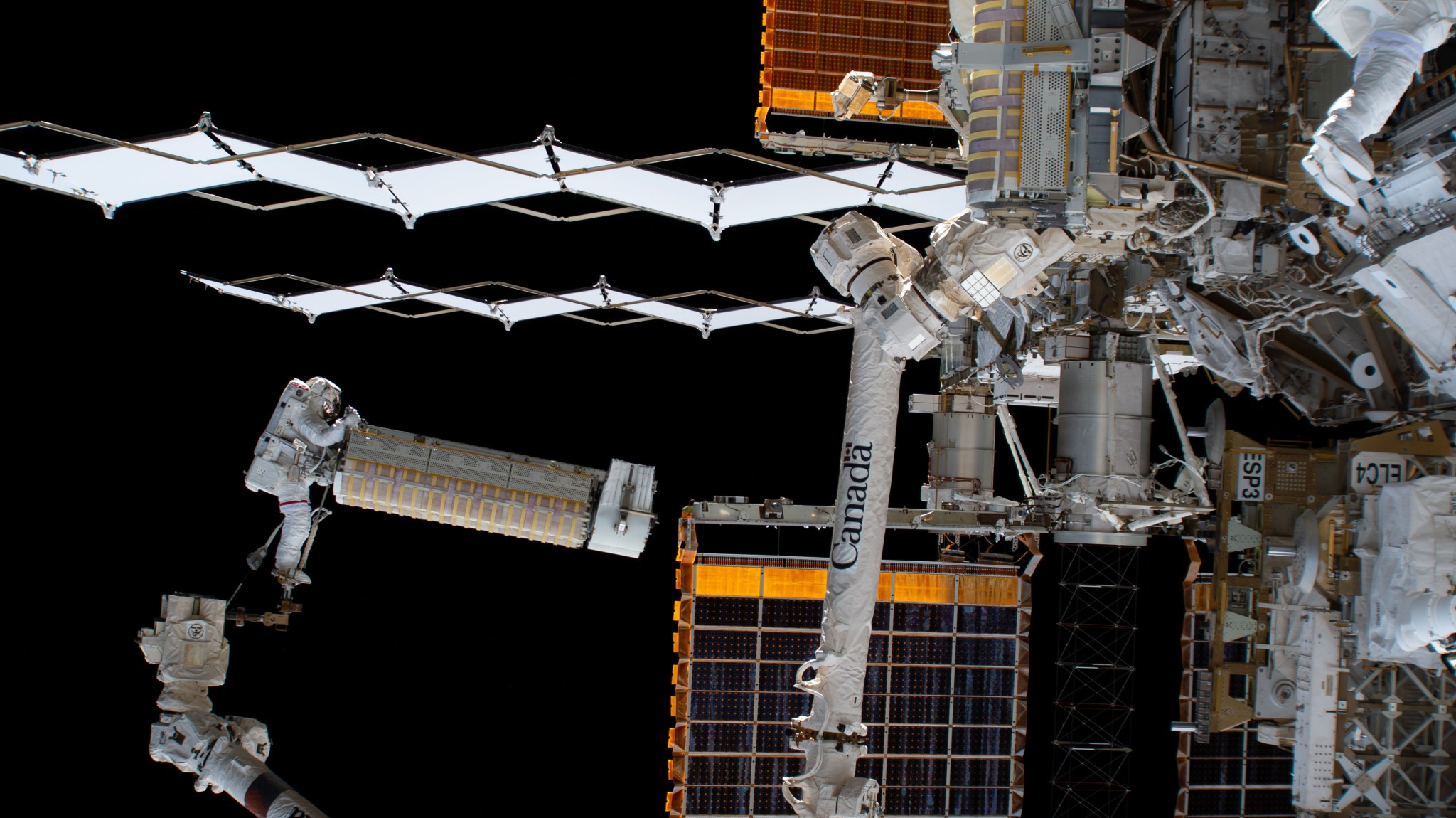A salute is widely recognized as a display of respect, but did you know it also means ‘hello’ in American Sign Language? It is one of the signs that Jesse Bazley, International Space Station/Commercial Low Earth Orbit Development Program integration team lead, subtly incorporates into his daily interactions with colleagues at NASA’s Johnson Space Center in Houston. In May 2021, Jesse Bazley worked his final shift as an Environmental and Thermal Operating Systems flight controller in the Mission Control Center at NASA’s Johnson Space Center in Houston. Image courtesy of…
Read MoreTag: Johnson Space Center
Station Science Top News: Oct. 11, 2024
Researchers verified that 3D micro-computed tomography scans can map the orientation of plant roots in space and used the method to demonstrate that carrots grown in actual and simulated microgravity both had random root orientation. These findings suggest that simulated microgravity offers a reliable and more affordable tool for studying plant adaptation to spaceflight. MULTI-TROP evaluated the role of gravity and other factors on plant growth. Plant roots grow downward in response to gravity on Earth, but in random directions in microgravity, which is a challenge for developing plant growth facilities for space. Results…
Read MoreIgniting Inspiration: Jennifer Becerra’s STEM Legacy at Johnson
Jennifer Becerra has nearly three decades of experience in education, both in the classroom and within the NASA community. Leading a team dedicated to fostering a passion for science, technology, engineering, and mathematics (STEM), she develops programs that inspire students and educators alike. Whether coordinating internships or organizing engagement events, Becerra creates educational opportunities to bring the excitement of NASA’s missions to life for students. As NASA’s Office of STEM Engagement (OSTEM) student services manager at Johnson Space Center in Houston, her efforts aim to cultivate the next generation of explorers and…
Read MoreNASA Astronauts, Leadership Visit Children’s Hospital, Cancer Moonshot Event
2 min read Preparations for Next Moonwalk Simulations Underway (and Underwater) NASA astronaut Yvonne Cagle and former astronaut Kenneth Cockrell pose with Eli Toribio and Rhydian Daniels at the University of California, San Francisco Bakar Cancer Hospital. Patients gathered to meet the astronauts and learn more about human spaceflight and NASA’s cancer research efforts. NASA/Brandon Torres Navarrete NASA astronauts, scientists, and researchers, and leadership from the University of California, San Francisco (UCSF) met with cancer patients and gathered in a discussion about potential research opportunities and collaborations as part of…
Read MoreArtemis I Radiation Measurements Validate Orion Safety for Astronauts
On flight day 13, Orion reached its maximum distance from Earth during the Artemis I mission when it was 268,563 miles away from our home planet. Orion has now traveled farther than any other spacecraft built for humans. Credit: NASA NASA’s Orion spacecraft is designed to keep astronauts safe in deep space, protecting them from the unforgiving environment far from Earth. During the uncrewed Artemis I mission, researchers from NASA, along with several collaborators, flew payloads onboard Orion to measure potential radiation exposure to astronauts. Radiation measurements were taken inside…
Read MoreStation Science Top News: Oct. 4, 2024
Engineered heart tissues in space showed impairments that led to increased arrhythmias and loss of muscle strength, changes similar to cardiac aging. This finding suggests that the engineered tissues, essentially an automated heart-on-a-chip platform, can be used to study cardiac issues in space and aging-related cardiovascular disease on Earth. Microgravity exposure is known to cause changes in cardiovascular function similar to those seen with aging on Earth. Engineered Heart Tissues assessed these changes using 3D cultured cardiac muscle tissue. The 3D cultures, grown with special scaffolds and derived from human cells, are better at…
Read MoreNASA Invites Media to SpaceX’s 31st Resupply Launch to Space Station
The SpaceX Dragon spacecraft approaching the International Space Station Credits: NASA Media accreditation is open for the next launch to deliver NASA science investigations, supplies, and equipment to the International Space Station. This launch is the 31st SpaceX commercial resupply services mission to the orbital laboratory for the agency and will lift off on the company’s Falcon 9 rocket. NASA and SpaceX are targeting no earlier than Wednesday, Oct. 30, to launch the SpaceX Dragon spacecraft from Launch Complex 39A at NASA’s Kennedy Space Center in Florida. Credentialing to cover…
Read MoreHow NASA Astronauts Vote from Space Aboard International Space Station
3 min read Preparations for Next Moonwalk Simulations Underway (and Underwater) The American flag inside the cupola of the International Space Station (Credits: NASA). Credit: NASA NASA astronauts aboard the International Space Station have the opportunity to vote in general elections through absentee ballots or early voting in coordination with the county clerk’s office where they live. So, how is voting from space possible? Through NASA’s Space Communication and Navigation (SCaN) Program. Similar to most data transmitted between the space station and the Mission Control Center at NASA’s Johnson Space…
Read MoreFacility Managers, Assemble: Protecting Johnson Space Center’s People and Places
Not all heroes wear capes (or blue flight suits). At Johnson Space Center in Houston, the heroes might train their colleagues how to safely respond and evacuate their office in an emergency. They might investigate office accidents and remove potential hazards. Or they might help fix a leaky bathroom sink or a broken coffee maker. Those heroes are approximately 135 on-site facility managers who ensure the safety and health of every building and its occupants. Established in 2009, the Facility Manager program encompasses buildings at Johnson Space Center, Sonny Carter…
Read MoreThree-time Spacewalker Josh Cassada to Retire from NASA
Oct. 1, 2024 NASA astronaut Josh Cassada holds a roll-out solar array as he rides the Canadarm2 robotic arm during a spacewalk in support of the Expedition 68 mission aboard the International Space Station on Dec. 3, 2022. Credit: NASA Three-time Spacewalker Josh Cassada to Retire from NASA NASA astronaut Josh Cassada retired Oct. 1, after 11 years of service to the agency across multiple programs, including 157 days in space and three spacewalks. Cassada also is a retired United States Navy captain and naval aviator with more than two…
Read More